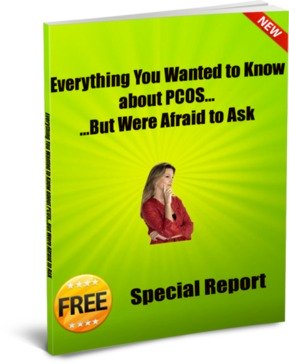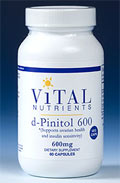PCOS Diet Plan - Change Your Carbs
A critical next step toward an effective PCOS diet plan is to change the type of carbohydrates you're consuming.
Dietary carbohydrates consist of one or more of these elements: starches, sugars and fiber.
They are a major source of energy in the diet and are found primarily in plant foods such as fruits, vegetables, legumes, grains, nuts and seeds.
Why Are Carbs Important?
Carbs are especially relevant to PCOS partly because of their ability to increase your blood sugar.
If your blood sugar gets raised too much too fast, a lot of insulin gets produced in order to lower your blood sugar back down to a normal level.
But if you eat the wrong kind of carbohydrate all the time, your insulin levels could stay too high. When your insulin levels stay too high, other hormones get thrown out of balance and normal metabolism is disturbed.
One of the most serious metabolic disturbances is called "insulin resistance", where the insulin signaling system is impaired and insulin has greater difficulty doing its job.
Insulin resistance is thought by many medical researchers to be one of several root causes of PCOS.
Insulin has a powerful effect on other hormones, PCOS symptoms and your ability to lose weight.
What you eat has a powerful effect on your hormones, including insulin.
Eat Low-Glycemic Carbohydrates Only
"Low glycemic" means that the carbohydrate does not increase your blood sugar very much when you eat it.
But how do you know whether a carbohydrate is low glycemic or not?
There are two ways to know whether a carb is low glycemic.
- It has a low "glycemic index" value.
- It is an unrefined carbohydrate that naturally contains fiber.
What Is the "Glycemic Index"?
The glycemic index is a number assigned to a food, based on how much it increased the blood sugar of a test group of people.
The benchmark food for the glycemic index is usually glucose, which is a sugar that is assigned a value of 100. The other foods are compared to glucose.
For example, mashed potatoes has a glycemic index value of 92. A Snicker's bar has a value of 55. Lentils have a value of 29.
The lower the number, the less impact the carbohydrate in the food will have on your blood sugar. So, in general, the lower the glycemic index number, the better.
So where do you go to find the glycemic index value for various foods? Numerous diet or nutrition books contain listings of the glycemic index values for various foods. These books are available online or at your local bookstore.
Read chapter 4.2 of our PCOS diet e-book to learn more about the glycemic index and important concepts related to it.
Make Sure Your Carbohydrates Are Unrefined
One of the main reasons why some foods have a lower glycemic index than others is that they are unrefined and unprocessed.
Take the glycemic index for rice as an example:
- Steamed brown (unrefined) rice = 50
- Parboiled white rice = 72
- White rice cakes = 82
In this case, you can see that eating white rice is a very poor dietary choice. In terms of blood sugar control, you are much better off eating unrefined brown rice instead.
The reason that brown rice has a lower glycemic index and why it is better for you is that it contains a lot more fiber, which is the indigestible portion of the carbohydrate.
Fiber slows down the absorption of sugars in the carbohydrate, thus helping to control your blood sugar.
Fiber also helps you to excrete excess estrogen, helps to curb your appetite and thus reduce symptoms of PCOS.
To learn more about fiber and unrefined foods, read chapters 3.4 and 4.5 in the PCOS diet e-book.
Your Carbs Should Have a Low Glycemic Index AND Be Unrefined
A low glycemic index number alone is not sufficient reason to eat a carbohydrate food. It should also be unrefined.
Here's why.
Scientists have come up with a concept called "glycemic load". Glycemic load is a more advanced and useful concept than glycemic index.
The glycemic load takes into account the effect of fiber in reducing the impact on your blood sugar.
To illustrate, let's compare two foods: Snicker's bars and carrots.
The glycemic index of a Snicker's bar is 55. The glycemic index for raw carrots is 47.
Based on the glycemic index alone, a carrot would be only a slightly better choice than a Snicker's bar.
But when you take fiber into account, you see a big difference.
The glycemic LOAD of a Snicker's is high at 19 while a carrot is a negligible 3. In other words, it's actually more than six times worse for your blood sugar to eat a Snicker's bar than eating the same amount of carrots.
Imagine something ridiculous. Suppose you were to eat one pound of Snicker's bars versus one pound of raw carrots. In the Snicker's bars, you would get a ton of calories and a substantial blood sugar increase. It could also make you feel sick. In contrast, eating a pound of carrots may make you feel full but have almost no impact whatsoever on your blood sugar.
It's all because carrots are loaded with fiber and a Snicker's has almost none.
If this glycemic topic is all a bit confusing, review chapter 4.2 in the PCOS diet e-book.
By the way, all the recipes in the e-book use low glycemic foods. So you can eat a lot of food but still minimize any disturbance to your blood sugar and thus better control your insulin and other hormones.
Your Food Is Your Medicine
Improving the quality of the carbohydrates in your diet is more important and ultimately more effective than any drug you could possibly take.
Your diet plays a huge role in the outcome of PCOS.
The e-book below reviews in great detail the type of carbohydrates you should consume and those which you should avoid. It also has a very extensive discussion of glycemic index and glycemic load.
See Related Diet Articles
What's a Good Diet?
Why You Should Avoid Convenience Foods
The Dangers of GMO Foods
The Benefits of Juicing
You Need Antioxidants
The Eat Right for Your Type Diet
PCOS Health Review
This free newsletter gives you original and immediately usable information to help you deal with PCOS.
Get the latest research, tips for improving your health, answers to questions, success stories, and more!
Your e-mail address is totally secure. We will never misuse your information.
Enter Your Email Above to Subscribe Today
and Get Your Questions Answered in this Free Special Report!





